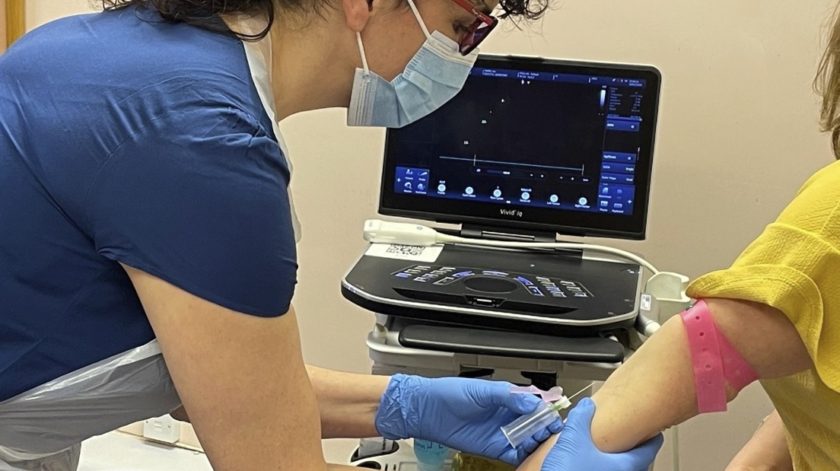Betsi: Simple test costing just £15 saves lives, money and hospital beds

A new blood test that costs as little as £15 is being adopted by hospital emergency departments to help diagnose heart failure patients more quickly, reducing the need for ultrasound examinations by around 75 per cent.
The simple procedure is expected to speed up diagnoses for patients arriving at emergency departments and acute medical admissions units, saving time and reducing hospital admissions.
The test, known as the NT Pro B-type Natriuretic Peptide (BNP) test, is already used by Betsi Cadwaladr UHB’s Community Cardiology Service, where it has brought better outcomes for patients.
GP Graham Thomas, the clinical lead, said, “We know earlier treatment for heart failure saves lives and it halves hospital admissions. It saves a lot of money and is better for the health service and the patients.”
The hormone test, which is performed on a blood sample, looks for a hormone released by cardiac cells when they are under strain.
It mainly rules out heart failure, the most important cardiac cause of symptoms such as fatigue, getting out of breath, and legs swelling, which are common complaints in primary care.
If the test is normal, significant heart failure can be excluded, and other treatments can be explored, without the need for ultrasound scanning.
If hormone levels are raised, patients will be referred to one of 12 one-stop community diagnostic clinics across the region.
Around 400 samples are taken each month, with approximately 700 people each year referred to the clinics.
The BCUHB has led the way in opening these clinics, which are supported by a small team of physiologists and two GPs.
Dr. Thomas added that the test is simple from the patient and the GP’s point of view and provides a quick and strong reassurance without the need to travel or undergo an ultrasound examination and specialist assessment, which would cost at least £300.
He also noted that it’s easier to do a blood test than set up a hospital appointment, and people are tested and screened, which means that when a clinic appointment is required, the right people are being seen by specialists.
The hope is that the test’s adoption in acute hospitals will save time and reduce hospital admissions, allowing patients to be started on appropriate treatment and followed up in community clinics.
From now on, the test will be available for hospital emergency departments and acute medical admissions units.
Spotted something? Got a story? Email: [email protected]
Latest News
